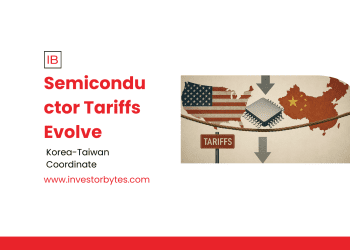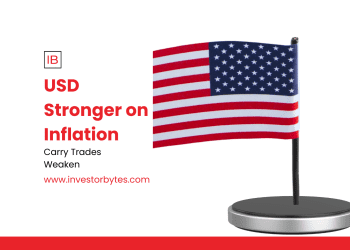Written by Jessica DiNapoli
Reuters, New York City -According to a corporate executive who spoke to Reuters, Nestle’s new food brand for consumers on weight-loss pills like Wegovy will highlight that the meals are high in protein, fibre, and nutrients without naming the popular drugs.
According to Tom Moe, president of meals at Nestle USA, the biggest food manufacturer in the world, regulatory concerns have forced the company to take the medicine names off the label. Instead, he said, Nestle will use social media to promote its Vital Pursuit brand of frozen meals priced at $5 and lower.
“We won’t directly make the connection (to the drugs) on the food package,” Moe stated.
Nestle’s reluctance to list medications such as Wegovy and Ozempic from Novo Nordisk (NYSE: NVO) on its packaging demonstrates the unpredictability that faces multinational food firms when they make significant bets on marketing goods intended expressly for the millions of individuals who take appetite-suppressing prescriptions.
The pills, which belong to a family of pharmaceuticals called GLP-1 agonists, have the potential to negatively impact the earnings of fast-food chains and snack manufacturers because those who take them drastically reduce their food intake.
As its pizzas and fajita melts begin to appear in supermarket freezers this autumn, Nestle will encounter a plethora of rivals touting their goods’ ability to specifically target individuals taking certain drugs.
The manufacturer of Biocare claims on the bottle that it can “alleviate side effects” like nausea for those taking semaglutides, the active ingredient in Wegovy and Ozempic, and the drink costs $4.50 per serving.
Although there may be gastrointestinal adverse effects from the drugs, doctors advise patients to continue eating, particularly foods high in protein, to preserve their energy and prevent muscle loss.
Herbalife (NYSE: HLF) markets smoothies that are packaged and sold for $185.10. The company says these shakes can help people meet their nutritional needs while taking injectable medicines, or “the shot,” as they are commonly referred to informally.
Retailers who sell supplements, like as GNC, are attempting to take advantage of the trend by setting up a section of their stores specifically for GLP-1 users, where they will be selling protein powder and fibre.
Nestle may face regulatory scrutiny if the packaging for Vital Pursuit products makes reference to the weight-loss medications.
“We’re not a medication, we’re a food product,” Moe stated.
Lauren Handel, an attorney specialising in food law, said that making references to the pharmaceuticals could imply that the meal somehow prevents or treats disease—claims that can only be made for items certified by the U.S. Food and Drug Administration.
“It’s a tricky area where you’d want to be careful about what you say,” Handel stated. “The safest course of action is not to mention any drugs.”
She said that advertising is subject to the same rules. FDA standards may be met by labelling products as “companions” of the medications or as “suitable for people on a diet”. She stated, “Some companies will take more risk.”
Nestle refused to comment on whether or not it will mention the medications in commercials.
“TOTAL GAME CHANGER”
Using a more direct approach, Herbalife posted on Facebook (NASDAQ: META) the following message: “Using a GLP-1 weight-loss drug? Use the GLP-1 Companion Pack from Herbalife to support your dietary needs.”
Frank Lamberti, Chief Commercial Officer of Herbalife, stated that the business went with GLP-1 rather than well-known brand names like Ozempic to prevent upsetting consumers who are on competing pharmaceuticals like Zepbound and Mounjaro from Eli Lilly (NYSE: LLY) or who stopped taking the drugs but are still conscious of their weight.
The company that manufactures Biocare, Robard Corp., stated that it is promoting the beverage via a “strong influencer community who are all taking GLP-1s.”
Influencer Ashley Dunham, from Jacksonville, Florida, is involved in the biocare industry. She stated in a TikTok video that the product has been an “absolute game changer” in helping her maintain her weight after she lost 100 pounds (45.4 kg).
Due to their high protein or low sugar content, Coca-Cola (NYSE: KO) and yoghurt manufacturer Danone claim that several of their products are ideal for individuals taking certain drugs.
People using the drugs often brag about Coke’s Fairlife shakes on social media, citing their 42 grammes of protein.
A Fairlife representative stated that the firm has heard from customers using the pharmaceuticals that they enjoy the shakes, but that the company does not have any paid partners or influencers who associate the shakes with GLP-1s or weight loss, nor does it target them with free items or other incentives.
Conagra Brands, the developer of Healthy Choice meals (NYSE: CAG), has informed Reuters this month that it will refrain from listing medicine names on food packaging targeted at consumers who take the medications.
Using the names can put off people who might otherwise buy the products but aren’t using the medicines, according to Conagra’s director of strategic insights Megan Bullock.
In order to assist consumers using GLP-1s in determining whether a food item is appropriate for them, Conagra will concentrate on features of its current goods, such as the amount of protein or fibre, according to Vice President of Demand Science Bob Nolan.
Although executives have stated that Conagra sees a chance to sell more frozen meals to those on the drugs, the company is not currently creating new brands for them.
According to American University marketing professor Kelli Frias, people are still unsure about what foods to eat when taking prescription drugs.
According to her, food producers are “trying to create new associations.” “We don’t have those associations in our mind until we’re taught them.”








